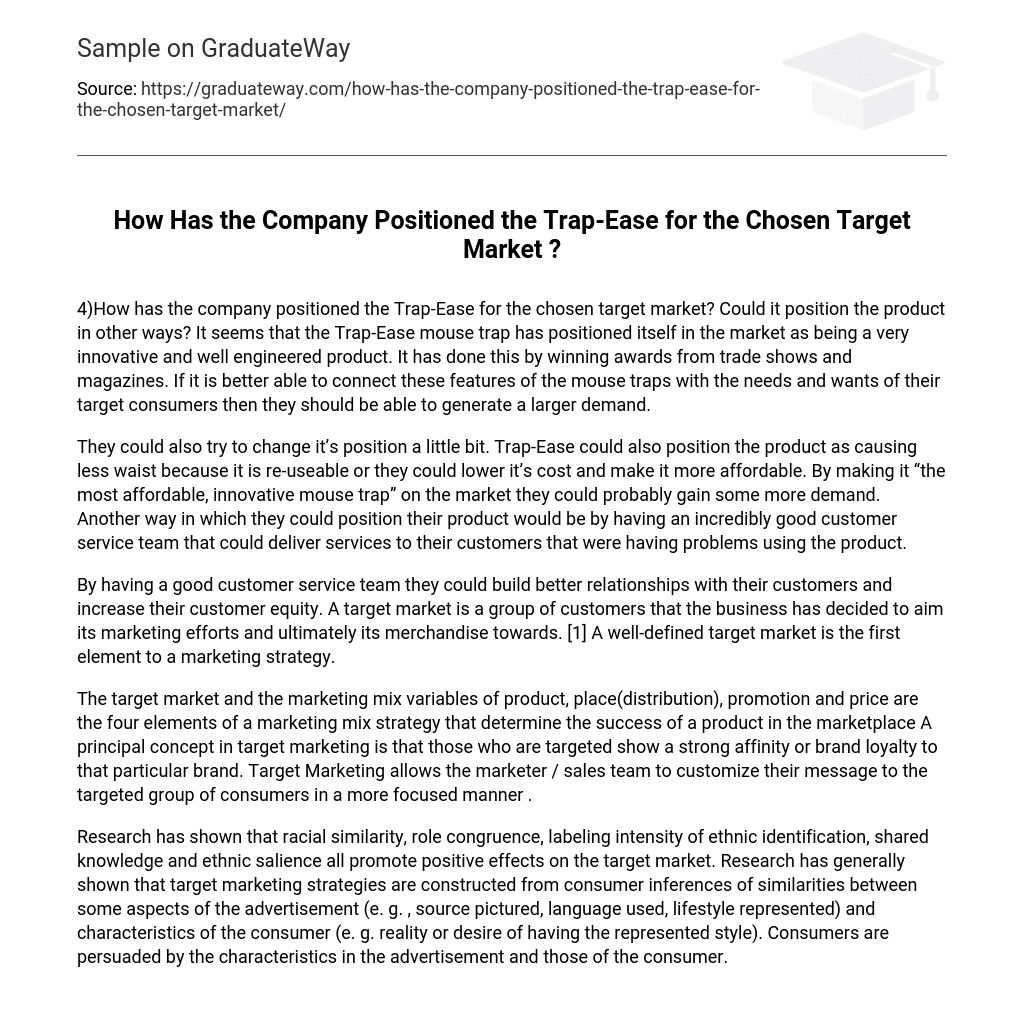4)How has the company positioned the Trap-Ease for the chosen target market? Could it position the product in other ways? It seems that the Trap-Ease mouse trap has positioned itself in the market as being a very innovative and well engineered product. It has done this by winning awards from trade shows and magazines. If it is better able to connect these features of the mouse traps with the needs and wants of their target consumers then they should be able to generate a larger demand.
They could also try to change it’s position a little bit. Trap-Ease could also position the product as causing less waist because it is re-useable or they could lower it’s cost and make it more affordable. By making it “the most affordable, innovative mouse trap” on the market they could probably gain some more demand. Another way in which they could position their product would be by having an incredibly good customer service team that could deliver services to their customers that were having problems using the product.
By having a good customer service team they could build better relationships with their customers and increase their customer equity. A target market is a group of customers that the business has decided to aim its marketing efforts and ultimately its merchandise towards. [1] A well-defined target market is the first element to a marketing strategy.
The target market and the marketing mix variables of product, place(distribution), promotion and price are the four elements of a marketing mix strategy that determine the success of a product in the marketplace A principal concept in target marketing is that those who are targeted show a strong affinity or brand loyalty to that particular brand. Target Marketing allows the marketer / sales team to customize their message to the targeted group of consumers in a more focused manner .
Research has shown that racial similarity, role congruence, labeling intensity of ethnic identification, shared knowledge and ethnic salience all promote positive effects on the target market. Research has generally shown that target marketing strategies are constructed from consumer inferences of similarities between some aspects of the advertisement (e. g. , source pictured, language used, lifestyle represented) and characteristics of the consumer (e. g. reality or desire of having the represented style). Consumers are persuaded by the characteristics in the advertisement and those of the consumer.





